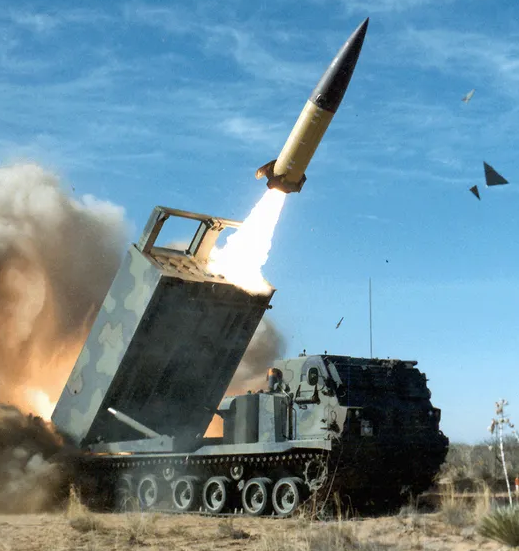Highlights: A study this summer found that using a single gas stove burner on high can raise levels of cancer-causing benzene above what’s been observed from secondhand smoke.
A new investigation by NPR and the Climate Investigations Center found that the gas industry tried to downplay the health risks of gas stoves for decades, turning to many of the same public-relations tactics the tobacco industry used to cover up the risks of smoking. Gas utilities even hired some of the same PR firms and scientists that Big Tobacco did.
Earlier this year, an investigation from DeSmog showed that the industry understood the hazards of gas appliances as far back as the 1970s and concealed what they knew from the public.
It’s a strategy that goes back as far back as 1972, according to the most recent investigation. That year, the gas industry got advice from Richard Darrow, who helped manufacture controversy around the health effects of smoking as the lead for tobacco accounts at the public relations firm Hill + Knowlton. At an American Gas Association conference, Darrow told utilities they needed to respond to claims that gas appliances were polluting homes and shape the narrative around the issue before critics got the chance. Scientists were starting to discover that exposure to nitrogen dioxide—a pollutant emitted by gas stoves—was linked to respiratory illnesses. So Darrow advised utilities to “mount the massive, consistent, long-range public relations programs necessary to cope with the problems.”
These studies didn’t just confuse the public, but also the federal government. When the Environmental Protection Agency assessed the health effects of nitrogen dioxide pollution in 1982, its review included five studies finding no evidence of problems—four of which were funded by the gas industry, the Climate Investigations Center recently uncovered.
Karen Harbert, the American Gas Association’s CEO, acknowledged that the gas industry has “collaborated” with researchers to “inform and educate regulators about the safety of gas cooking appliances.” Harbert claimed that the available science “does not provide sufficient or consistent evidence demonstrating chronic health hazards from natural gas ranges”—a line that should sound familiar by now.
Capitalism is such shit…
It really is…it’s outlived it’s usefulness and needs to go the way of the horse drawn carriage.
What is the better solution? What country has implemented something better than capitalism?
A system that fully accepts environmental realities and works against the wholesale ecocide of the planet as it’s first tenet. The rest is kinda whatever at this point. It could be a resource based economy or some sort of mixed planned/free market. Just gotta make sure that invisible hand doesn’t strangle us all in our sleep, ya know?
A climate-focused approach can be built into any economic system. This isn’t really an argument for ditching the economic system that has led to the least human suffering.
Saving the planet and endless expansion are simply not compatible. The way we are living is going to kill us all, and it’s just a fact. There are finite resources and the pollution and by products are not going away.
I mean you ever think about how much waste there is from regular everyday things like junk mail? From having to spend fuel on a tractor to plant trees to harvest paper and then process it into paper to then print the bullshit ads on the junk mail and then it has to be delivered and that causes more pollution and then you just put it straight in the garbage.
Or how about the plastic bag they give you with every purchase at literally any store? Those things don’t go away. And we are endlessly producing them, because that’s how capitalism works. You have to increase profits. That’s the whole point.
You can’t reconcile capitalism and the environment.
Seems like cradle to grave pricing would address the issues you mention.
We are still back at what’s the alternative? Planned Economies are notorious for not being able to predict the right things to produce, and that tended to massively misallocate resources too, arguably worse, but at best in a different way.
Corruption also just seems to be a human thing and in planned economies people still snuggle up to politicians in corrupt ways, just with a different veneer.
We also have tried regulation on capitalism - capture happens. We tried liberalization of communism and we got modern China.
I think tribe based society might be the only ones I’ve heard of that focus on sustainably living, but that loses out to larger societies force / power, and I haven’t seen a way to scale that up.
I really don’t think you can just point at China and completely rule out a system as a concept. It’s also worth noting that communism is the antithesis of capitalism. Why do you think that America aggressively attacked every country that’s ever tried it? If we didn’t attack them straight on, we ran a proxy war against them.
And just because the like 78 people that will see this thread don’t have the answer doesn’t mean that there isn’t one. This is obviously a massive and complex issue that will likely only be solved by all of the worlds power working together.
You can’t just say “Oh we don’t know what to do about this, so I guess we shouldn’t change anything at all”. We can still be taking smaller steps.
Just simple things like better public transit will do a lot. Stronger EPA restrictions on just about every industry would go a really long way.
We haven’t tried the one thing everyone’s asking for. Why is it that every time someone mentioned something like this, your minds immediately go to China, the Soviet Union, etc. And not any of the successful social democracies in Europe? Programmed much?
You do realize that capitalism itself is only a few hundred years old. There have been any number of other systems throughout history. And objectively capitalism hasn’t been any better than many of them. There’s been lots of differing circumstances under which they’ve all operated. It’s also arguable that capitalism enables and demands the worst of human nature.
It’s the basic premise of capitalism that it values capital over everything else. It’s in the very name. Socialistic theories of which there are so many outside leninism. Values, society and people more. You can still have markets. You can still have currency. Those things all predate capitalism and are not tied to it in any way. But having a robust social safety net and basic provisions for society always goes much better than leaving everyone to fend for themselves as the oligarchs gorge themselves on stolen wealth.
Also popping in to say you might get some mileage out of a book like The People’s Republic of Walmart, it’s neat, barring the stinky economist bullshit that pops up from the fucking cato institute as soon as you look it up on google.
I feel like least human suffering is a rather insane statement with for-profit healthcare a thing. Or, you know, slavery.
How many people die every year to housing insecurity? To inadequate access to healthcare? How many people suffer because they can’t afford not to?
Absolutely ludicrous.
Or all the suffering that has been and will be caused by climate change on behalf of the shareholders
A climate-focused approach can be built into any economic system
That’s worked super well so far
Regulated capitalism. Prosecuting corruption.
Regulated capitalism. Prosecuting corruption.
Right, regulate capitalism… by regulating the capitalists that have all the money and can buy the regulators any time they feel like it.
Sounds legit.
It was four words dude. I know it hurts, but try reading all of them.
Well if no one else has done something, it clearly can’t be done, right?
The main alternative is, instead of focusing on wealth accumulation, focus on societal betterment.
I might just not be able to see outside my capitalist culture, but I think that’s a long road to get the mass of society on board. There’s just so many tasks that need to be done that I really doubt societal betterment would get people to do it.
There’s a reason Peter Singer’s stuff has only limited appeal.
You can do both, it’s not an either/or.
It depends on what limits you put on wealth accumulation. The problem is if there’s no upper limit, everything else falls by the wayside. Because accumulating wealth gets a lot more difficult if your workforce can think for themselves.
Absolutely, that’s part of it. In the US, the wealthy used be taxed a lot more, we need to go back to that time.
BombOmOm wanted to do nothing.
I don’t know what that means.
“ BombOmOm” = username
“”wanted to do nothing” should be self explanatory.
Marx figured it out 160 years ago. Spend some time and learn about it. Did the Wright brothers have to fly in a plane before they built one?
Marxist ideas just don’t seem to work in practice. You have to have a revolution that is authoritarian to force the change, and then the people in power never give it up willingly. Almost no one ever does.
But even if you did an ideal Marxist transformation, you have the huge economic problem of figuring out what to produce and where to distribute it. This is an impossible task for a committee to manage at a national scale. Capitalism outsources figuring that out to every transaction. Even when a company gets it wrong, it’s limited to that company or sector. But in planned economies when they get it wrong, it’s the entire economy. It’s all great depressions and no minor corrections.
Whats worse is you lose a lot of choices - at best a good hearted technocrat is telling you what to make and what you will get. At worse you get famines because of mistakes in prediction.
This has all been debunked. Particularly, Second Thought has a great video on planned economies if you are interested. Cybersyn in Chile would have worked if capitalism and the CIA hadn’t planned a coup.
Edit: Cuba is still going strong after 60 years despite sanctions and embargoes. To say Marxism/ socialism doesn’t work is a bit superficial and certainly not true.
Why not move to cuba…
Ergo decedo. Why don’t you learn why that’s a bad argument?
I love that you seem to think that it’s just as simple as pick up and move to the country you like. As if the red carpet in all other countries was always rolled out just for you. Let me guess, American? Can anyone just pick up and move to the US? Or the EU? Heard of all the crap around ‘migrants’? You don’t think you’d be considered a migrant if you wanted to move to Cuba, with all the restrictions that would entail? Or do you just assume that the whole world is just dying to welcome you to settle in their countries?
Why don’t you move to Somalia?
It’s pretty ignorant to act like we know it doesn’t work. If you’re having a race and one racer has his shoes tied together, do you really know who was fastest? Nearly every time a leftist government has been installed the US intervenes to ensure it doesn’t succeed. For example: https://en.wikipedia.org/wiki/1954_Guatemalan_coup_d’état
The US feared a successful “communist” country, so they toppled the democracy and installed a dictatorship more aligned with US business ideals. If it’s guaranteed to fail, why was the US so scared of them succeeding?
The fact of the matter is the only countries that could survive the US attempting to topple then were countries with a strong central power and cultural hegymony. Those aren’t requirements to exist, they are requirements to outlast US intervention.
Why would non-capitalist countries need capitalist countries to do well? We have had very large non-capitalist countries, like the USSR. Can a country that size not do well if there aren’t capitalist countries to help it economically? What size does a non-capitalist country need to be to not have to rely on capitalist countries?
What?
I’m assuming you didn’t read my comment. They don’t need capitalist countries. They just are never given a chance by capitalist countries to even try to be successful. Capitalists are scared of the status quo changing, so they undermine any non-capitalist country. Why do they always do this, without exception, if they’re so certain they’ll fail regardless? Obviously it’s because they know they aren’t guaranteed to fail.
Feudalism is such shit.
What is the better solution? What country has implemented something better than Feudalism?
You, with a time machine, probably.
Reactionaries mad
Everyone’s gonna be like, oh the USSR, or venezuela, or whatever type of fully nationalized country that’s got embargoed to shit and has either gone under or has gone the way of cuba and just kind of lives with it. And I’m not gonna waste your time trying to convince you about how all those countries are actually great or yadda yadda ya. Instead, I wanna turn you on to a couple neat things. First, would probably be the Zapatistas, who are a pretty cool kind of anarchist group that tends to function well mostly independent of the mexican government. Kind of hard to find information on them, but they’re neat and I think outside of the general preconceived notions that people have against the idea itself, it’s hard not to empathize with opposition to the mostly corrupt and totally fuckied mexican government. There’s also, for your consideration the Mondragon Corporation, a co-operative that employs 80,000 people and rivals the size of probably a mid-sized country. If you’re just taking issue with power structures themselves, rather than the monopoly on violence or the borders said to define a country as different from a corporation, than that’s kind of an interesting counterpoint to like, global capitalism. Kind of ironic that they’re, you know, a corporation, but then the structure of the corporation is different enough as to call into question whether or not the insane wealth disparities of corporations that americans are generally used to are required. But then, the surrounding stuff also has some problems, because the corporation itself has been criticized for employing contract workers, much like a state might employ immigrant labor or outsourced labor, reaping the rewards but giving none of the benefits, kind of creating an internal sense of “nationalism” in the corp. But then, I suppose, let us not let the perfect be the enemy of the good.
What country isn’t at least mostly capitalist?
paradism dot org
Capitalism is industrialised greed, it keeps the wheels turning, having people forever chase shit that they don’t need for the sake of feeling better than the man stood next to them. What an inspirational ladder to climb.
You’re under the misunderstanding that it works.
You’re under the misunderstanding that it works.
Again, what works better? What country has implemented a better economic system?
It’s more the sociopaths running the companies that are shit. They don’t give a damn about the people they exploit and the harm they cause. And every institution’s got their share of them, not just businesses.
And they’re in the positions they are because of capitalism. Capitalism dictates you should exploit as much as possible to increase profits.
they’re in the positions they are because of capitalism.
More specifically, they are in them because of human nature. Those who don’t care about others gravitate towards positions of power. That is not exclusive to capitalism. Any hierarchy is prone to sociopaths rising to positions of power. They seek them no matter what the economic system is.
In other words, power corrupts. People without power who get power inevitably start to act like sociopaths.
But feel free to blame capitalism if you like. It is the cause of many problems with our society. Any change that decreases its power should be welcomed at least in the context of American society.
It isn’t exclusive to capitalism or caused by it, but it is exacerbated by it. It is a system that rewards the worst parts of humanity. I never claimed it to be the cause, only part of the issue.
If it’s inherent to hierarchy, how about we work to remove as much hierarchy as possible. That’s my preference.
There are other forms of political economies without hierarchies. I once thought human nature was the problem like you, until I discovered David Graeber. David Graeber dismisses the notion that humans are inherently selfish. Society and culture shape our selfishness due to material needs. Capitalism shapes society and culture.
The recommended book The Dawn of Everything looks interesting. I’ll have to add it to my reading list.
There are other forms of political economies without hierarchies.
Would you mind giving some examples of them?
I was using human nature as a catch all term for how humans act on a population wide scale in our current society. I think the term status seeking fits better than selfish. Status seeking behavior is essentially seeking power within a hierarchy. It often is selfish, but isn’t necessarily.
Most people in a society and in an organization aren’t status seeking or selfish, but those few who are status seeking are rewarded by the going up the hierarchy faster relative to their peers.
That’s a political system not an economic system.
There are a wide range of economic systems that I would be broadly categorized on 2 factors.
- market vs planned economies
- social vs private ownership
For example, the US would tend towards a privately owned, market economy in most sectors.
On the other hand, Norway (or Vietnam to a degree) would trend towards a socially owned, market economy.
An example of privately owned, planned economy would be China. However, China would probably claim to be a socially owned, planned economy. I classify it as privately owned because of the authoritarian control the government has over assets and people.
These are broad generalizations of economies that do not apply to every sector of each economy.
Thank you. I tire from excuses for capitalism.
I don’t think it’s going away ever. We need regulations that require companies to have greater, more powerful ethics oversight. Launching fake research like this should be criminal.
Because any other form of government did (and does) not have the same problem to an even greater extent?
Capitalism is not a form of government. It is an economic system.
You are, of course, correct. The question remains the same.
Lol that you’re being downvoted.
Everyone knows there were never any cover ups under Communism! RBMK reactor? Completely safe, comrade!
/s
That could be pretty easily described as state-owned capitalism… Position in the party was your capital, influence, and authority all rolled into one conveniently bribed package. You could describe the whole USSR as a nation-state megacorp… Make the borders open and do better marketing, and it might as well have been called Soviet Energy Corp. Although, if we go full corpo-fuedal, that’s probably not far off the mark
They even had the global trade and horrific externalities down - remember how everyone started to starve, and how their weapons were always disappearing onto the black market? It was all sold off - it all got shipped overseas and sold so a party member could have a nest egg stored in Switzerland. They even did the whole “Irish potato famine” thing where they kept exporting food while people starved
I seriously have no idea what Lenin was smoking… He built a government that took all of the downsides of capitalism, and focused them in one convenient institution. It’s the perfect government system you’d make to manage humans if you’ve never actually met a human or seen a government before
It seems to me that centralization is the key problem with every modern system… Big just has a way of going bad
Mostly because communism is not a form of government, but an economic system. A communist economy can be run by a democratic government or an authoritarian one. Same as capitalism.
Some communist economy governments were terrible, others weren’t so terrible, but all of them were sabotaged every step along the way of changing their economic systems by Capitalist interests.
Sure, mostly because of that minor mistake and not because of the majority of people here liking to hear something like that. “Capitalism bad” = upvotes, regardless of how little it has to do with the topic at hand.
Whataboutism
It’s like everything is lies or something, that sure is surprising in a world where the only important thing is money. It’s like its an inevitable consequence or something. Like we shouldn’t have organized our society this way
fuckin shocking
I was told that the free market would naturally remove any bad actors… I guess we just have to deal with half a century of collateral damage before that happens.
That’s when they roll out the “it’s not really a free market” argument.
Within one hour of your comment. As if summoned…
Half a century? This kind of thing has been going on much longer than 50 years…
It’s a strategy that goes back as far back as 1972, according to the most recent investigation.
Was basing it on that from OP.
Of course these fundamental issues with capitalism are inherent to the system, and in general, began long before 1972.
It’s that neoliberalism is a lie. Neoliberalism which strated in the 70s with financial capitalism and then deployed fully with Reagan and Thatcher boosted disregulation to make all of this (profit before everything else) possible. Capitalism is a part of neoliberalism, but neoliberalism is more than just capitalism and free market. The fact is that both neoliberalism and capitalism have to be strongly regulated at best.
You might want to reread das Kapital. Capitalism and neoliberalism are the same.
They should, or at least a brief summary of it. I am not going to begrudge someone for not wanting to dive into such a dry dense tome. But Marx as someone who studied sociology has many astute analysis and critique of the inherent social dis-functions and toxicity of capitalism.
But so many of us, in the United States especially have been beaten over the head with mccarthy-ist propaganda since birth. As well as intense indoctrination to treat Leninism as a representation of all socialism. When that almost couldn’t be farther from the truth. Leninism much like fascism is much more tied to totalitarianism* or authoritarianism than it is to any particular socioeconomic model.
Never heard footballitarianism before. Is this what it means?
Nah, that’s just me not double checking ai dictation well enough lol.
I might be incorrect, but wasn’t Leninism supposed to be a temporary stepping stone to communism because the USSR wasn’t industrialized? In already industrialized societies we might be able to start with market socialism or a type of anarcho-communism. With my limited imagination it seems the next test after overcoming authoritarianism might be the abolishment of money. If that could be done, Then we will have achieved early communism.
Didn’t a lot of other places industrialize without communism? You’ll hear a lot of capitalist making similar claims. It doesn’t mean that it’s true. I think that at the time the world in general was industrializing. And the extent to which capitalism or communism aided in that is debatable at best.
Tokens of exchange. However, I don’t see ever going away. We might be able to minimize the importance and role in society. But they aren’t going anywhere
that sure is not surprising
but yeah. I got your point
Ever heard of sarcasm?
Yeah, like anyone would have ever heard of sarcasm.
That’s because 20% of what you read on Reddit is bullshit and 99.9% of what’s on Lemmy is bullshit - this post included.
I hear a lot that gas is cheaper for heating and I took that as the truth for a long time. A while ago I did the math though, and for my house is would have been nearly the same annual power bill if I replaced my 90% gas furnace and water heater with electric units. Although the price of gas is far more economical for heating, there’s a monthly gas usage fee that’s a flat rate. If you go all electric, you don’t pay that, and over the course of a year, I didn’t heat enough for the lower gas price to offset the flat fees. If instead of a regular electric furnace and water heater, they were heat pumps, electric would have been much cheaper than gas.
This certainly would depend on your local prices and weather and how well your house is insulated, but if you need a new furnace, I’d do the math over a year to see if gas is still the most financially attractive option, especially if you can install an air or ground source heat pump.
Heat pumps are so stupidly efficient that my coworker didn’t believe it, even when I showed him how it worked, lol. They are the SSDs of heating and cooling, particularly ground source ones. I had an apartment with one and loved the $60 summer power bills. God, it was fantastic. $60 for the AC, hot water, gaming PC, washer/dryer/dishwasher, oven, and lights.
…And no worries of a gas line leaking or carbon monoxide poisoning.
I heard that geo heat pump installation cost is very high. Did you do the math to see how many summers of $60 energy bills it will take to recuperate initial investment?
Geo heat pump install is indeed very high. But air source heat pumps (both heat pump water heaters and heat pumps for heating/cooling) don’t have that issue and have similar performance, except in extreme climates where geo outperforms.
Even in extreme climates, air source can have resistive heaters built in for emergency heat. Doesn’t save you nearly as much money, but it will keep your house warm when the temperature drops to -38f for a week or so. :)
It worked quite well when I was living in Montana.
They perform similarly in terms of heating a cooling ability, but ground source heat pumps are much more efficient. It’s still a tough sell though since the installation costs are huge.
Modern air source pumps work down to -17 degrees Farenheit even without resistive heaters. It’s something to consider, but it’s not a concern for most people.
Oh, it would take quite awhile to recoup, and air source is much cheaper to install than ground source. Pays itself back over the decades. Right now (and for the next 10 years or so), the federal gov will give you a kickback if you swap your furnace for a qualifying heatpump, up to 11k USD. The installation might be $30k, but a qualifying heatpump covered under that program will save you a serious chunk of change. And as long as you do maintenance on them, they should last for a very long time.
My apartment had them built in as it was all new construction. I miss that place!
One thing to deeming before you out one in: whether you have good insulation and good windows first. Those will go a long way in saving you $$$ on your energy bills regardless of what you are using to heat and cool your home.
I believe the cost of an electric heater was a lot higher even after using available rebates. Hopefully the prices go down or rebates increase and it becomes a more viable option
Gas stoves are easier and more comfortable to cook, but if this study is true im definitely going electrict next.
try induction stoves. they require certain pans (magnetic so test with a fridge magnet if it sticks you good) but its got INSANE temperature control on the high quality units. like, if something starts boiling and you don’t want that you adjust down and it almost instantly stops boiling. the only thing to watch for is getting a unit with variable power not duty cycles. this is a great counter top unit for trying it out tho!
Just got an induction cooktop and almost cried turning it from high to low and watching it stop bubbling almost instantly
Have you tried to cook in a electric stove? I personally hate them. I just turn the exhaust on.
Electric costs about 3x as much in my experience, and it is extremely dry and uncomfortable. Definitely need a humidifier if you’re using electric
???
What are you smoking? Energy is energy, it doesn’t matter where you get the heat from.
…i think he means heat from an inverter unit (heat pump) vs a hot water radiator.
I believe hydrocarbon fuels produce water (vapor) as a combustion byproduct, so LPG or natural gas could certainly contribute to humidity levels in some cases.
There may also be a separate effect by which the heat strips in an electric furnace dry out the air versus the heat exchanger in a gas furnace, but I don’t know about that.
Dude, you don’t just pump the combustion result through your house. Sure, it produces some water vapor, but hopefully you aren’t breathing in the byproducts produced by it. If your air is dry it’s going to be dry no matter what you use to heat with.
(An air conditioner conditions the air though and removes moisture from it, so that will dry out your air. Not your heater though. I also don’t think a heat pump in heat mode will dry the air, but I’m unsure on this.)
Dude, you don’t just pump the combustion result through your house.
I wrote “LPG or natural gas could certainly contribute to humidity levels in some cases,” and was thinking specifically of non-vented gas heaters, which are very common in my experience, and are in some cases used for whole-house heating where there isn’t a central air circulation system. In this case, the combustion result is literally released into the house.
While this thread is about gas heating, the article is about gas cooking stoves, which in most cases can be vented only at most very poorly (with a range hood), so the risk being dicussed is literally a result of releasing the combustion result into your house.
indeed some houses have gas-fired wall heaters which have shitty ventilation, if any. In which case the air would of course be moist.
It’s also worth noting that moist air feels warmer and is not prone to any evaporative cooling effects. Some people will vent their vented dryers into the house to boost the humidity in order to save on heating costs.
https://youtu.be/fmd0pMKxjhA?si=dRObkdpvaU8wRzpE
Please explain by what physical mechanism electric heat can remove water from the air.
Technology connections informed me of this long ago! And it makes perfect sense. But almost every house I go in has a gas stove because apparently people think it’s better or nicer or “more professional” or whatever.
I find this crazy. I live in SE USA and I’ve never even seen a gas stove outside of camping. When everyone was “freaking out” online about the gas stove ban, I was just confused.
Haha! I go in about three houses per day for work and the majority will have gas. Also SE US. Although I’ve never had one in the places I’ve lived so if not for work I’d never have seen them either.
There’s a certain wealth line where they all have gas stoves. Look up the Wolf 6-burner gas range. Not something you find in a 3-2 home.
See those and thermador all the time haha such a waste
I grew up in a rural area, hence the no gas. I now live in a metro area and maybe it’s just my friends, but I’ve really never seen one. They always sounded dangerous to me.
Outside of this (and the utility fucking up, sending too much pressure, and blowing up a bunch of houses) they’re perfectly safe. Millions of homes around the world have gas service and incidents are very rare.
But given the health implications of just normal operation, I’m still not going to get a gas stove in the future.
I’m just here to let you know that in some rural areas, bottled gas is/was the viable solution.
Are there any restaurants that use electric stoves?
I think this is mostly because it is what cooks are used to. The ones who go to culinary school learned on gas stoves, and the ones who learned on the job also mostly learned on gas stoves.
Gas stoves aren’t the best option anymore. Induction stoves heat up much quicker and offer much finer heat control, but they are a bit more expensive, and many of the cooks would have to relearn how to make some of the stuff they are used to cooking.
So not only is it what cooks are used to, but it would require an investment from the restaurant that most aren’t willing to look into. Gas stoves last for many many years, so it’s not like they break down and need replacing regularly, either.
I’ve never been in a restaurant kitchen. Can’t tell you.
It’s just nicer to cook on gas. Electric is a pain in the ass and generally less efficient time-wise. Induction apparently solves a lot of issues, though.
Induction solves all of the issues.
Even old school electric burners typically heat water to boiling faster than gas.
Gas is more responsive, but induction comes close. Some of the new induction burners have fake flames to indicate how high the output is visually.
Shit, what one do you have? My family has some stupidly expensive one, and the goddamn electric pilot lights get dirty and fail to click off for about 30-50 seconds.
This is also their second gas stove in about 12 years. I only wanted electric because theirs was such a bitch to deal with all the time. :P
Induction stoves are still pretty expensive, and resistance electric stoves suck ass.
Do they? I’d check out Technology Connections videos on the subject. A couple more seconds to boil water is worth not inhaling whatever junk byproducts of combustion.
Induction is cheap as shit nowadays, and faster, so no-one should install new gas stoves. When renovating I ripped out my gas line.
HOWEVER I completely disagree with Alec on resistive electric stoves being “fine”. They’re terrible. They have ENORMOUS thermal inertia. He says “just move the pan off the heater”, but that doesn’t take into account that just getting a pan to the correct temperature is much harder on resistive electric. It takes forever to heat up an empty pan, but if you wait until the food is cooking to turn down the heat, it’s already too late and your food will be overcooked. Frying an egg is the worst, by the time that the pan is hot you gotta kill the heat entirely or the egg will be burnt so there is no margin for adjustment. Ugh. With induction it’s so much easier, you can just adjust the heat based on how the egg is frying and the pan will actually cool down or heat up enough that the egg will come out alright.
I mean sure depending on ventilation and personal opinions on air quality then resistive may be favorable over gas, but if I’m honest, if induction didn’t exist I’d probably take my chances with cancer.
You know I wonder to what extent that is about people having old electric stoves that have bang on bang off resistive electric coils rather than like, a tuned consistent current coil that heats up and stays hot at a temperature. Cause the bang on bang off coil is probably going to have more thermal inertia, or, you’d want more thermal inertia, for a more consistent heat. I dunno about the thermal inertia of the coil in general, though, I’ve definitely cooked on shitty enough electric stoves that just an egg, butter, and a nonstick pan will cook for like 3 seconds, go back to being off for a minute, and then the coil will heat up and cook the egg for another 3 seconds, which is fuckin crazy, that shit blows.
I don’t see how resistive is any different from gas in that respect.
I’m not particularly on any side of this discussion, but gas is a lot more responsive in terms of temperature changes than a resistive hob.
You can go from full to lowest and that change will apply to the pan pretty much immediately. As the other person said, there’s thermal inertia with the element of a resistive hob, it’s going to take a bit of time to cool to a lower temperature
You don’t see how turning down a gas burner will lower the temperature in a pan faster than waiting for a red hot spiral of metal to cool off?
Boiling water isn’t what id try to sell a gas stove on. If you’re a hobbyist cook you develop hobbyist, non essential task opinions.
I bet 95% of people could happily use electric and never even wonder about alternatives.
The last 5 want the features and cook pans used with gas, to get the hobbyist results they are after.
To that I say go for it, but be aware of the risks.
Limited sample size, but Technology Connections did a great video where gas wasn’t even particularly better at boiling water. It looks like it should be because FIRE, but you get into a mess of needing to very carefully match pots to burners.
Also, look in to an electric kettle for water. Even a shitty american voltage kettle is awesome relative to putting a kettle on the stove.
For discussion, I always use an electric kettle to start water for pasta and similar.
I also love TC and have seen this video.
The hobbyist cook angle is qualitative though, if a home cook wants to emulate restaurant style there’s just no comparison.
For acknowledgement, I always do the same thing with the kettle.
I also love TC, and have seen this one too!
And, if that wasn’t enough, I even agree with you on the last part.
Now, what do we discuss?
I am comfortable arguing about any topic of your choice. I won’t let the possibility of my not being familiar with it reduce our sport.
Eh. Unless you ACTUALLY get a restaurant grade set up (not just the expensive stuff with Bobby Flay branding), that tend to actually need real range hoods and so forth, you are, at best, cosplaying being a restaurant chef. At the consumer grade, the BTU differences are mostly a matter of branding over technology. And the responsiveness is almost universally beat by induction.
Don’t get me wrong. I am a sicko with a propane burner in his backyard for when I want to make a night out of my stir fry (or season some cast iron/carbon steel).
But I’ve had gas burners and electric burners over the decades and have even had the opportunity to cook in restaurant kitchens on occasion (the joys of being friends with people having millennial weddings…).
- Consumer grade? Electric and gas are more or less interchangeable. I feel fancier when I have a gas burner but I also end up sweating a lot more and don’t want to cook in the summer
- The usual reason given for why electric is bad is that it is horrible for “wok hei”. Ignoring the hilarity of right wing chuds suddenly caring about east asian cuisne, “wok hei” is mostly a Cantonese thing and generally involves actually igniting some of the cooking oil which should only ever be done outside with a fire extinguisher nearby. What woks DO need is very high heat so as to fry, rather than steam, the ingredients. But… that is resolved by just cooking in batches. That is WHY home chefs should keep a resting (or even mise en place) bowl nearby. Cook a component, swap it out with the next. Or, if you are in bachelor mode, just do it all at once. Just don’t put the entire atomic family meal in the wok at the same time until the very end.
- Gas in a restaurant is FUN. Although it is mostly about just heating pans ridiculously fast (and being drenched in sweat even in the winter…). Incredibly easy to burn just about anything, but it is also really nice that I can overcrowd the hell out of my pan or wok and barely notice.
- I do not believe electric will ever be viable for a restaurant kitchen. Well, maybe if they adopt a model of always keeping pans on the burners and adding ingredients as needed but…
- I think, with a bit of tweaking, induction can be VERY viable and have almost all the same properties as “restaurant gas”. With maybe the exception of giving you an open flame to char something but… I’ve always felt weird about doing that with a gas flame?
- When I eventually have to replace my electric stove, I am going induction.
Speed to boil water is not at all the selling point of gas.
It’s speed and precision of temperature control.
Coils stay hot. When you turn the gas off, the heat is off RIGHT NOW. When you turn it on it’s on RIGHT NOW.
Many coils pulse full heat to simulate different heat levels. Gas gives you very precise control over exact heat levels and it is instantly responsive to change.
I’m not here to argue about the possible health concerns, I don’t know anything about that and would need to read more. But people who argue electric ranges are just as effective as gas simply haven’t cooked as much. I’m certain of this because I used to think that too until I switched to gas. Gas is plainly better.
I’ve heard great things about induction and maybe that’s the way I’ll go next. Not sure yet. I’m certainly curious.
Many coils pulse full heat to simulate different heat levels. Gas gives you very precise control over exact heat levels and it is instantly responsive to change.
You’ve got the precision factor backwards. Gas is a clear loser on that.
When you have knob levels 0—9, if you set the knob to 3 on electric you get exactly ½ the heat energy that you get from level 6. It’s perfectly linear. This is not true in the slightest with gas. A gas flame is non-linear as you go from 0 to 9. All you can do is eye-ball the flame and guess. Even when you have a flame size in mind, it’s not reproduceable because you’re still eye-balling it every time. You can’t trust the levels on a gas knob either because they’re so non-linear that you can get a big flame difference in certain points along the scale.
Gas also has less precision of control because of the reduced range at both ends. The lowest possible gas setting is still too hot for some tasks. So the best you can do is manually mimic the pulsing of electric by turning the burner off and reigniting periodically. The highest temp on gas is also less than the highest temp electric can achieve.
The only “precision” task that gas wins at is at the zero (off) level, and speed, AFAICT, which is related to precision. Both of those factors can be discarded for the most part when comparing induction because it adjusts temp demand fast enough.
I appreciate your well mathed response, but this is a classic example of using a numbers argument where the eye test should prevail. It’s like people who play fantasy sports and argue that advanced stats prove a player who sucks, is actually good.
I don’t at all think in the terms you are thinking of when I cook. I’m not looking at the flames. I’m not looking for “exactly half” when I drop the temp. I’m cooking, and watching the food I make react. Sometimes I need to raise or drop the temp just a tiny bit, and I can do that with excellent speed and resolution of change with gas. Electric pulses do not offer this. Every electric stove I have ever used is absolutely terrible at making small quick adjustments of heat. I am not thinking about the exact percentage by which I want to raise or lower it, and getting concerned about whether it’s exactly right. I’m not concerned about the linearity of change (although honestly if I’m thinking of it, my gas stove’s heat range feels fairly linear to me). I am doing this by intuition or feel, and by watching what I’m cooking to see that it is doing what I want.
Also I have no idea what you mean about gas being too hot at its lowest setting. I have never encountered this in many years of cooking. Mine goes low enough that I can keep a sauce warm without stirring without it sticking. I have however, many times encountered food that scorched because the electric coils stayed hot for 15 minutes after being turned off.
Ultimately, I probably incorrectly used the word precision. Someone who is a superior wordsmith may be able to direct me to the correct verbage.
Induction stoves get cheaper and cheaper every year.
Also? It is mostly just the old exposed metal coil resistive stoves that were horrible. You know, the one we all had growing up where you had to poke the coil with a fork until it made connection again so that it would heat up.
Pretty much any glass top resistive electric stove (so anything made in the past two decades or so?) is fine. Very easy to clean, much less prone to damage, and gets pretty hot pretty fast. You aren’t getting “wok hei” for all the cantonese stir frying you do but… you aren’t getting that with a gas stove either unless you have an ACTUAL restaurant setup (no, not just the expensive options at the Lowes) which tend to have very specific ventilation requirements too… If you want to go all out with your wok, get an outdoor propane burner.
Now, I do actually think the drawback to resistive heating staying hot is a lot bigger than “just pick up the pot”. Not when I am making a weeknight meal for myself. But when I am cooking a larger meal for a date night or having friends over and am using multiple burners? I don’t really have anywhere to put the pot. But that is also incredibly “first world problems” of “I have too much food”
I actually prefer the coils. The glass-top ones are never as easy to clean as they claim, and the glass between the burner and the pot reduces heat transfer and causes them to heat up even slower. With the coil-type the pot is resting on the heater, which means maximum heat transfer via conduction.
Another problem is that the cooktop stays very hot after you take it off the heat. With gas and induction the heat stops instantly, but I’ve burned a lot of food because I misjudged how long it takes for a resistive burner to cool down. And the glass tops are again worse because they have a lot more thermal mass than a coil.
Induction solves all of these problems, though. Heat is controllable and instant, and the cooktop cools down very quickly.
The glass in-between makes them heat up much faster, it is the whole point actually. It is IR transparent, so only the heating element itself has to heat up to get things started. Then only a bit of insulation (next to no mass) has to heat up to get things to nearly 100 %.
I have also never heard or seen this glass being harder to clean than any other type of stove, which are a pain to clean in comparison.
The glass is definitely more of a pain to clean. It’s easy enough to get stuff off, but visually you can see any streaks or missed corners much more than an enamel stovetop.
resistance electric stoves suck ass.
Sucks less ass than cancer.
I’ll die of old age waiting for a resistive electric burner to boil water.
It is getting better, we got ours for a little more than $1,000, but electric stoves are dirt cheap. 1/3rd to 1/2 the price.
Induction stoves are not expensive at all.
suck ass
I always blame my tools when I have no experience using them.
They’re different. You’ll be fine.
I do have experience with gas, induction, and traditional electric and can say with confidence that cooking on traditional electric sucks ass. Induction is good though and I’d say it’s on par with gas if you have the right pans.
I’d miss my heirloom cast irons hah
Cast iron works fine on induction though
You scratching that across that glass?
Also you can’t lift it.
Fully agree induction is great for 95% of needs.
My ideal kitchen would have both (and does lol), with a big vent and a big window.
Maybe. And typically I don’t lift a pan that’s cooking, even on gas.
Cast iron is perfectly fine on induction. And no you wont scratch the glass with it. And yes you can lift it.
Resistance electric stoves can only get to about 1600 degrees. Gas stoves get to well over 3400. You can’t get a good a sear out of resistance electric, and water takes forever to boil.
My next stove is going to be induction, though I will have a propane burner for when I really need to char something.
And I’m sure you’ll be horrified to know that I have a charcoal grill like some kind of caveman.
You use the charcoal grill outside where the fumes easily disperse. A gas stove releases the pollution directly into your living space, where it hangs around. They’re not comparable.
Well it is “better”, but it isn’t (as this article highlights) better.
Even against an induction stovetop though, it’s only better in some niche situations, otherwise I’d say the induction stovetop is better, especially because it can’t set stuff on fire.
Acklutally, up until recently gas has been far cheaper than induction. It was leagues better than electric. Even today unless you are spending a lot more on a new stove and probably upping running costs; it’s expensive to move to conduction when gas stoves last for basically forever. It’s also quite regional to natural gas areas where it’s been cheaper than electricity.
If you want to sear meat at high temps, a powerful gas stove is still today going to outperform a induction.
I’ll gladly spend a little more time in front of a stove that isn’t actively killing me.
Or doesn’t allow itself to cook off in a multi-home-leveling explosion. Gas lines going is never fun.
And that’s your choice. Just don’t pretend like there isn’t a valid reason so you can make fun of hillbillies.
What are you going on about? Who am I making fun of? There’s sound evidence that gas stoves emit harmful pollutants.
I was curious about temps, according to this induction gets much hotter than gas. Wouldn’t that be much better for searing?

Gas stoves usually show up in colder places where homes would be heated with gas, and in older cities. 240V electricity was dangerous early on, and homes were usually already hooked up to gas networks for heating.
If you want to sear meat at high temps, a powerful gas stove is still today going to outperform a induction.
Nope, that is a myth.
I’ve done plenty of my own testing on several mid range from 200 up to 600 and even a few full units on 250/40/50 circuits. None of them were as hot, in even half the time to get up to 700f especially on a double burner range. The cheaper 1500w portables many times didn’t even make it to 700. Being more efficient is not my concern.
Beyond that, I’m still left with gas for using the oven vs electric, and is more efficient.
I’ve lived in places with gas stoves and with electric stoves. I vastly prefer gas stoves. Just open a window or use the exhaust fan. I don’t see a problem. Gas is currently way cheaper than electricity where I live.
Did you not read the article…?
Ok I had a similar question, but DID read the article.
I was also wondering if using an external-exhaust hood vent helped, because it sounds like it would. You’d think it would pull the NO2 outside and reduce exposure.
I did read the article. What point are you trying to make? I concede that gas stoves do generate potentially harmful combustion byproducts but in my opinion, adequate ventilation minimizes the health risks.
Did you? They don’t mention whether or not ventilation mitigates the effects.
This NPR article mentions ventilation:
“Benzene forms in flames and other high-temperature environments, such as the flares found in oil fields and refineries. We now know that benzene also forms in the flames of gas stoves in our homes,” said Rob Jackson in a statement. He’s the study’s senior author and a Stanford professor of earth sciences.
With one burner on high or the oven at 350 degrees, the researchers found benzene levels in a house can be worse than average levels for second-hand tobacco smoke. And they found the toxin doesn’t just stay in the kitchen, it can migrate to other places, such as bedrooms.
“Good ventilation helps reduce pollutant concentrations, but we found that exhaust fans were often ineffective at eliminating benzene exposure,” Jackson said.
That’s interesting but it seems like an incomplete answer. I’ve read that it’s very common for people to install a range hood that’s too small. If it’s true that range hoods are often under-sized, then it naturally follows that they would often be ineffective. So I would like to know the answer in terms of a high-end well-designed & /big/ range hood. I would also expect a low hood to be more effective than one installed high above the stove.
I’d definitely be interested in seeing more concrete numbers as well, but I was surprised (perhaps in my ignorance) that harmful chemicals were being produced in any substantial quantity at all. I mean, burning most things has that kind of reaction, but it’s somewhat more obvious when sitting around all evening next to the smoke from a campfire for instance. I just never really thought much about the chemical reaction of ignited propane.
I wouldn’t be surprised if a lot of people thought about their stove fans as something to primarily take care of any smoke and some of the smell from cooking, rather than a necessity to clear out toxic fumes like you’d need in a chem lab.
For me it was Climate Town.
It’s been time to switch to induction stoves for a long time now, they are basically better in every way that matters.
How are they with temperature regulation? I think that’s a big holdback for a lot of people. A gas burner gives consistent heat output at the set level, while an electric burner cycles on and off, resulting in a wider temperature range.
ETA: Wow, WTF? Downvoted for asking a legit question. Are we Reddit now?
They’re probably more consistent than gas. Provided your cookware isn’t moved on the surface, they provide a constant energy output that is a simple linear equation of energy in - losses = energy out. Period. Induction elements “cycle” on and off – hundreds or thousands of times per second. They don’t work like a radiant electric stovetop at all. There is no human perceptible duty cycle.
Fancier models like Bosch and some of the new GE Profile/Cafe ones can even wirelessly communicate with special cookware that has a temperature sensor built in, and deliver you absolute parametrically controlled temperature output at a specific temperature down to the degree, with computer controlled precision. It doesn’t get any better than that.
Provided your cookware isn’t moved on the surface
One thing I don’t like about induction is that I don’t feel like a cool chef tossing the pan. I have to just let it sit there, and if I pick the pan up it beeps at me and turns off. Plus there’s no fire.
It’s safer but definitely way less fun.
Mine will wait around five seconds before beeping at me. That usually gives me enough time for whatever flamboyance I’m attempting.
But you’re right that moving the pan away from the surface basically disconnects it from the heat source. Mine will noticeably warm a pan from about half an inch away, but no further.
I wish I could test drive a stove before I buy it. I’ve just been using a cheap induction cooktop and it’s so bad I’m sure a full-size stove would be better, but I don’t want to drop a couple grand plus rewiring my house to find out the stove I bought sucks as bad as this cooktop.
But damn can it boil water fast.
If you’re paying a couple of grand for one you’re probably looking at a premium unit. Or your local dealer is overcharging. The Frigidaire FCFI3083AS lists for $1199, a lot of retailers have it for less. Samsung’s model is a bit cheaper still, but don’t buy a Samsung appliance.
What don’t you like about the cooktop? And what brand is it?
They sell single burners. That use a 110. You can use it for water boiling and use the range for bugger meals
I feel like there’s gotta be a costco-like store that does that. I certainly would want the same thing.
Must be hard to braise.
Sounds like you have an old version of induction. There is no beeping on mine when doing that at all.
Induction elements “cycle” on and off – hundreds or thousands of times per second […] There is no human perceptible duty cycle
See unfortunately what you’re describing here are good induction stoves, which is not the majority of what is on the market.
I’ve seen far too many of the bad kind, with duty cycles measured in the tens of seconds. Your 7/10 on the dial could be - like a non-inverter microwave - something in the neighbourhood of 7 seconds on / 3 seconds off. At that point they can actually be worse to use than old halogen glass cooktops, which at least remain hot during the off part of their thermostat’s cycle.
This is not even just cheap no-name crap either, have witnessed it with big-name-brand in-bench stovetops with four-figure pricetags.
If you’re doing something like poaching eggs (which typically calls for a wide, flat pan), you’ll actually see the water starting and stopping boiling in a cycle as it switches. Absolutely terrible.
I have a le cheapo Frigidaire, and mine definitely doesn’t do that. I also have a Summit tabletop single burner induction hot plate kicking around, which I think cost me all of $130 and came with three pans in the box. It doesn’t do that, either.
If you’ve got a recent model that does have a long on-off duty cycle like that, you should name and shame so people know to avoid it. People buying that kind of thing and being turned off by it is just going to slow down the course of progress, here.
Induction has instant temperature control, combined with the possibility of having lower temperatures than gas allows for.
Additionally, there’s no temperature leakage into the room, nor any particles from combustion.
They are perfect at temperature regulation. I have a little 120v unit that even has a hold @ temperature function. Goes as low as 180 and I think as high as 500°
Remember induction heats the pan directly via induction and thus requires cookware that a magnet can stick to. Otherwise faster, more efficient, easy to control
They also boil water faster than consumer stoves. My pans are no longer sticky with the un-ignited gas residue. Baking is so much more even as well. I cook the same amount and my power/gas bill is lower than before. Lots of benefits.
Baking in electric is better than gas because one of the combustion products is water, which reduces the drying effect of baking.
It depends on what you’re baking. You wouldn’t want your cake to have a crispy hard crust on the outside, but you would want that with bread and pizza.
It really depends on which induction burner you have. I’ve got a 120v one with a “temperature hold” function. It varies +/- 30 degrees. Trying to hold chocolate or a cream sauce at a specific temperature always results in burning. Maybe I have a shitty one, but it just cycles on and off at full power at set intervals, and it’s nowhere near the consistency I get out of my gas stove.
I really, really hope the stoves out there don’t do this sort of thing, and actually just run the induction constantly at reduced output instead of just cycling on and off. But the cooktop is still perfect for boiling huge amounts of water, or getting cast iron rocket-hot for searing.
Just got rid of my gas stove and got induction. I will never cook with gas again. They have way faster heating and temperature control. Any one who says different hasn’t used induction.
Are we Reddit now?
Always have been.
And as others may have said, induction stoves hold perfect temperature, but also require you to use more substantial steel pots and pans to begin with. As such, they won’t suffer from poor temperature modulation like older resistive electric stoves with cheap aluminum pans would.
A lot of other comments in this chain are getting a single downvote so far.
It’s ok Big Gas/Oil, we know it’s you.
All electric are fine. There is no discernible difference by the time it gets to the food. Like I had to be academically informed that this on/off even happened, I had no idea. This is such a ridiculous fake concern that’s been created.
I’m sorry, it is unbelievable to me that anyone who has done a good amount of cooking on both gas and old-style electric stoves would say they are equivalent. It simply tells me you do not have adequate experience, or are not observant enough to notice.
I don’t mean this as a personal attack. It’s just…this isn’t an opinion. Gas is dramatically more responsive and precise for heat control. This is objective. If the way you cook does not leverage fine heat control or require quick changes to heat levels, then no you will not notice.
But the difference is stark and noticeable for someone who wants and uses this level of precision.
Out of curiosity, what are you cooking that requires quick changes to heat level?
Completely fair question.
Tons of things require this. Eggs are much easier this way. Anything that needs to be brought to a boil then dropped to a simmer. Anything that needs to not be overcooked but still needs to hit temp. Fish and chicken come to mind. It also just enables fine adjustments while cooking. If I am searing something but realize I crowded the plate and things have started steaming instead, it’s easy and fast to turn the heat up one notch.
Granted some of this comes down to what kind of pan you have too. I cook a lot with a carbon steel pan and it’s very quickly responsive to heat changes. I have a set of all-clad pans and they also respond relatively quickly. But like, my cast irons obviously don’t so it’s a bit moot for them.
Gas is dramatically more responsive and precise for heat control.
Compared to coil definitely, but not if we are talking induction. Induction is as responsive as gas for heat control. Of course noone should be buying electric coil stoves in this day and age.
I’ve heard that from people and I’m eager to eventually have a chance to try one. Our gas stove is under 10 years old and works fine, so a new induction range isn’t really on the horizon for us financially.
But I’m definitely interested to try one.
Gas fanatic freakout exhibit A. Has to change the point being discussed and then yes attack. No point discussing because this will repeat.
Sorry if it sounded like a freak out. That wasn’t intended.
How did I change the point? You said all electric ranges are fine. I contend they are not and tried to support that argument. Happy to hear your interpretation of what I said beyond dismissing it.
And again what I said wasn’t intended as a personal attack on you. But if the argument is that electric and gas are equivalently effective at cooking, that’s a difficult discussion to have because it’s coming from a place of factual inaccuracy.
It might come from those cheap portable models. I tried one my mom had and the cycles were very obvious. It was difficult to do anything where I had to hold a temp, even doing a simple simmer was hard because it would go from boiling to nothing repeatedly. Things constantly burned on it due to poor temp regulation. I know it was a shitty model and I expect full size models to be much better, but it was a concern of mine as well.
I do hope to pick up an induction within a year or two. Can’t really afford it at the moment though.
That mostly has to do with your cookware. I’ve got an older electric unit with really distinct power cycling like you say and it’s only a problem with cheaper aluminum pans. My good laminated steel pans and cast iron are perfectly consistent because they have a lot of thermal mass so they retain the heat and even out the power cycles into a nice average temperature.
Consistent heat to that level doesn’t matter outside of VERY specific use cases like tempering a ridiculously small amount of chocolate with very little water in the double boiler setup. Oh, and you have like pure aluminum pans, I guess.
Because also? Gas stoves aren’t as consistent as people think. Yes, we assume they are because we can see the fire. But various impurities in the line, air in the system, etc and you still get minor sputtering and fluctuations.
All of which… almost never matters. Because even when you are doing the most delicate of baking work: You tend to have a double boiler set up so that the water can maintain the heat during these fluctuations.
Freaking out because some idiot downvoted you. Are we Reddit now?
How are they with temperature regulation? I think that’s a big holdback for a lot of people. A gas burner gives consistent heat output at the set level, while an electric burner cycles on and off, resulting in a wider temperature range.
That is not how induction works. The big holdback for people is ignorance about what induction even is. Temperature regulation is instant same way as it is with gas.
I wonder if the same levels of pollutants are found in restaurants. Most if not all restaurants use gas stoves. The ventilation systems are usually multiple orders of magnitude better than what a typical household would have available.
Having worked in a few restaurants, the vent systems are usually placed above the stoves but the vent itself is kind of high up. It’s definitely capturing the fumes from the cooking process itself, but not clear if it’s also capturing the pollutants from the stove while it’s on.
There definitely has to be some spillage into the kitchen. More than using a laboratory grade ventilation hood but less than the typical gas stove in a typical household.
According to the American Lung Association, lung cancer diagnoses have risen a startling 84% among women over the past 42 years while dropping 36% among men over the same period. The overall number of cases remains fairly steady.
[…] Approximately 20% of women diagnosed with lung cancer today are lifelong non-smokers (by contrast, only 1 in 12 men with lung cancer have never smoked).
[…] These shocking statistics beg the question why?
“No one knows,” says John C. Kucharczuk, MD, Director of the Thoracic Oncology Network of the Abramson Cancer Center at Penn Medicine. “It could be hormonal. It could be attributed to high degrees of exposure to secondhand smoke. Some data suggests that among non-smoking females who develop lung cancer, there are chances of a genetic mutation. At this point, there’s no conclusive data.”
From: Penn Medicine
So… is the mystery behind women’s lung cancer solved? Lovely if so (/s).
"Make no mistake, radical environmentalists want to stop Americans from using natural gas. The Consumer Product Safety Commission’s proposed ban on gas stoves is the latest egregious scaremongering by the Far Left and their Biden administration allies. I am pleased to partner with Senator Manchin in this bipartisan effort to stop the federal government from issuing regulations that put the interests of the Green New Deal before the well-being of American families,” said Senator Cruz.
Aight. I must be missing something huge here.
Here’s the formula for burning methane:
CH4 + 2O2 → CO2 + 2H2O
Are there other chemicals in the gas that don’t combust? Or don’t combust completely?
EDIT: Jesus Christ I’m an idiot, and y’all upvoted this?! The end product is water and carbon dioxide. Better than straight methane in the atmosphere, at least in the long term, but damn I’m stupid sometimes.
It seems that the main problem is the existence of benzene in the natural gas. It’s not an additive; it exists in crude oil and comes through in the final product after cracking and refining. I haven’t been able to find anything showing the exact method for which benzene acts as a carcinogen, but there are several studies that show a strong correlation between benzene exposure and leukemia.
Benzene is also in gasoline, so it’s also recommended that you don’t spend a lot of time huffing gasoline.
Benzene is also in gasoline, so it’s also recommended that you don’t spend a lot of time huffing gasoline.
You’re not the boss of me.
Paint cans are still fine right?
Benzene is what’s called in intercolating agent. Essentially it can slip into your DNA strands between the base pairs, and hang out there so to speak. When your cells attempt to replicate DNA where benzene has sidled on in, it can cause errors in the replication. When cells build up enough DNA errors it can cause cancer.
Edit: this is an incorrect explanation, I was confusing benzene’s method of toxicity with ethidium bromide’s. Benzene metabolites are what’s toxic, usually due to oxidative damage.
Oh shit - thanks! I appreciate that. So how is it that benzene is able to get in there in the first place? Is it just because it’s non-polar? Or is it more that it activates certain pharmacophores on cells due to its shape, and is brought inside?
It seems I was actually wrong, sorry about that. I was thinking of agents like ethidium bromide, and assumed benzene was similarly toxic due to it’s planar structure. It seems it’s actually the metabolites of benzene that cause cancer, usually through oxidative damage:
Thanks for that! I really appreciate you.
Yes, natural gas contains a whole bunch of stuff that isn’t pure methane. It would be impractical and expensive to try and seperate out only the methane.
I assume there are contaminants or products of incomplete combustion.
LOL, you’re killing me Smalls. That’s exactly what I was asking.
Not sure about what happens with the chemical they add to make the gas smell.
There is some nitrogen in the air. In any combustion in the air, there is gonna be a small part of the nitrogen in the air reacting with the fuel, instead of oxygen. Why this happens when there are oxygen present? Idk. Entropy or something.
I’m a complete novice when it comes to chemistry though. So I might be completely wrong.
Nitrogen is notoriously unreactive though? Must be contaminants.
Most things become more reactive when heated. This includes nitrogen, here’s more info.
Is this natural gas or LPG
Natural gas. Although it wouldn’t surprise me if both have the same issues.
Yeah, pretty much whatever you burn it’s going to produce some compounds that aren’t good, unless maybe you’re running off of hydrogen or something which no one is. Pretty much always it’s some kind of carbon containing compound.
Even then, you’re going to get NOx. The atmosphere is 70% nitrogen and with high enough temperatures, some will always react with the available oxygen.
I’d expect LPG to have it worse
The interesting part in the NPR article is:
As the scientific evidence grew over time about the health effects from gas stoves, the industry used a playbook echoing the one that tobacco companies employed for decades to fend off regulation.
This is the case in each industry from tabacco to at the other end Autism for example. People should do their research and look for the quality of the papers and the COI (conflict of interest).
Most people cannot judge the quality of scientific papers, that’s what public regulators are for, but they failed the people there.
That’s what gets me about the “do your own research” parrots. Ok - let me just google it and blindly trust the top SEOd results. That’s what most people’s research is going to be
It’s good advice if the audience knew how to critically evaluate articles, but people don’t even read the articles.
Google Scholar is a thing.
I don’t know what the autism industry is. I agree that lots of industries use these tactics, while actively poisoning/exposing their customers to toxins. There is a big problem with the baby formula industry using big tobacco tactics to obfuscate facts about premature infants being killed by their products. Johnson and Johnson has also done this with talcum powder.
The thing with talcum powder was that it contained a certain portion of asbestos from the talc deposits it was mined from, which was determined to not be financially viable to separate out. So Johnson and Johnson just didn’t. Some of their baby powder was found to contain asbestos and they recalled a bunch of it. Then J&J claimed at the time they stopped selling talc based baby powder that this was due to “misinformation” surrounding its product.
Yeah, okay, sure.
The stuff you buy as baby powder now is corn starch based. This was news to me because I used to use the stuff to help mount inner tubes in motorcycle tires. The corn starch based stuff doesn’t work for that. Like, at all. I use soap or Windex now instead. No idea how well it works as actual baby powder.
…autism is an industry??
You have an entire bad industry around autism. It’s worse than people think with human rights abuses. The industry produces papers with huge methodology and data issues and COI. Autism Speak is the first relay for this missinformation.
This is the case in each industry from tabacco to at the other end Autism for example.
Ah, yes. The autism industry strikes again!
What do you mean about Autism? The vaccine study?
There is a lot of money dumped by organizations like Autism Speaks into research geared toward “curing” Autism, and running ad campaigns about how Autism is lurking in every corner waiting to destroy your family, whereas other studies demonstrate that neurodivergent folks just need to be treated like human beings to gain access to a meaningful life. This is what I assumed they were talking about when I read their comment.
Is this natural gas, or propane, or both? The article mostly uses just “gas” but does mention natural gas once.
Everything I researched was entirely focused on gas stoves being unhealthy, which seems to be the major issue.
Propane doesn’t seem to show up in a general search on this topic, and the carbon monoxide levels from mine didnt seem to go up while in use. So I believe it’s not as bad or even has the same problems.
That being said… I think we can also generalize that burning solid fuel in the open inside your house is probably a bad idea.
I also hate open flame stoves for cooking they suck and I’ll fight you on that. I’m extremely interested in getting this propane stove replaced with induction.
Benzene is the major issue. You have the same issue at the gas pump.
Thanks for linking that!
Those are the same things.
They’re not the same.
Natural gas is composed of a few different things like butane methane even propane and a few others.
Propane is just propane.
For environmental purposes, propane is cleaner than natural gas.
I don’t think the article distinguished the two.
Yes yes and gasoline isn’t literally petroleum, good job.
wtf are you on about
Knowing things, like propane being a product of natural gas (and petroleum) refinement, just like gasoline is a product of petroleum refinement, you ignorant yet pedantic dorks.
ah, we are all refined big bang on this blessed day.
Natural gas and propane are not the same thing.
Natural gas is methane, not propane.
can raise levels of cancer-causing benzene above what’s been observed from secondhand smoke.
Yeah this is fairly concerning, I usually think of benzene as super carcinogenic. They actually limit how much of it can be used in gasoline for that reason.
I’d probably want to compare benzene content from various sources and consult the OSHA guidelines before saying how bad this is, but there’s no doubt in my mind that this decidedly bad. You’re getting directly and consistently exposed to the benzene.
Laughs hysterically in South African… where we now have no choice but to use gas for almost everything because our electrical grid is collapsing due to IMF-approved neoliberal shitfuckery.
Gas stoves rock. Rather than banning gas stoves, just require that they be installed safely.
The answer here is simple- mandate a range hood with real outside exhaust (not the cheap ones that blow air back into the room). And require a make-up air vent with equivalent capacity.
Maybe require the stove to automatically engage the vent at low speed (near-silent) so when you start a burner the vent runs at like 10CFM or something automatically.


































